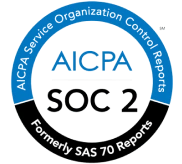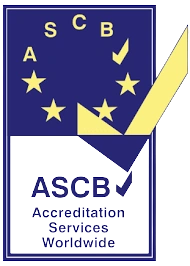Definition:
A promotion is the advancement of an employee to a higher position, grade, or role within an organization, often accompanied by increased responsibilities, higher status, and better compensation or benefits. Promotions are a formal acknowledgment of an employee’s skills, experience, performance, and potential for greater contribution to the organization.
In HR and organizational management, promotions serve as a motivational tool, a way to retain talent, and a method to align employees’ growth with the company’s strategic goals.
Why Promotion is important?
Promotion is important because it recognizes an employee’s hard work, skills, and contributions, while motivating them to perform even better. It boosts morale, increases job satisfaction, and strengthens loyalty toward the organization.
From a business perspective, promotions help retain top talent, build leadership pipelines, and maintain a culture of growth and performance. In short, it’s both a reward for past achievements and an investment in future potential.
History & Origin:
- Early Industrial Era: Promotions were informal and primarily based on seniority or apprenticeship completion.
- Mid-20th Century: With the rise of structured HR departments, promotions became tied to performance appraisals and formal career paths.
- Late 20th Century: Organizations introduced promotion policies and performance-based criteria, emphasizing merit over tenure.
- Modern Era: Promotions now incorporate competency-based assessments, leadership potential, skill development, and alignment with business goals. Digital HR tools like HRMS enable transparent tracking and evaluation of promotion criteria.
Key Features:
- Recognition of Performance: Promotion rewards employees for consistent performance and achievement.
- Higher Responsibility: Employees take on advanced roles with greater accountability.
- Enhanced Compensation & Benefits: Promotions usually include salary increments, bonuses, or other perks.
- Career Growth: Promotes personal and professional development within the organization.
- Formal HR Process: Promotions are guided by defined policies and performance criteria.
- Motivational Tool: Encourages employees to improve productivity, skills, and loyalty.
Purpose & Importance:
- Employee Motivation: Promotions incentivize employees to perform better.
- Talent Retention: Helps retain top talent by recognizing their contribution.
- Organizational Growth: Aligns employee advancement with strategic business objectives.
- Skill Development: Encourages employees to acquire new skills and competencies.
- Succession Planning: Identifies and prepares future leaders for key roles.
Modern Use in HR:
- Merit-Based Promotions: Tied to performance metrics, competencies, and results.
- Transparent Policies: Documented promotion policies ensure fairness and reduce bias.
- Digital Integration: HRMS platforms track employee performance, tenure, training, and promotion eligibility.
- Career Ladders & Development Plans: Employees are guided on how to reach higher positions.
- Diversity & Inclusion Focus: Modern HR practices ensure equitable promotion opportunities for all employees.
How to ask for Promotion?
It is important to be strategic and professional in order to request that you be promoted. Here's how you can do it:
- Be ready to state your case: Name your main accomplishments, quantifiable outputs, and contributions, which made the organization benefit.
- Research the job: Find out what and how much you will be doing, and what skills you will need to do the targeted job position.
- Time it well: Have a formal meeting when a performance review is being done or after the successful execution of a project.
- Be assertive, and deferential: Speak your interest and demonstrate your confidence in the fact that you are ready to take the next job.
- Discuss your development: Discuss how you have acquired new skills, as well as assumed new responsibilities.
- Demonstrate consistency with organizational objectives: articulate how your promotion will assist the team/organization in realizing its goals.
- Be receptive to receiving feedback: Hear your manager out and find out what you can do to continue preparing in case of inopportune time.
FAQs on Promotion:
- What do you mean by promotion?
A promotion is the advancement of an employee to a higher position or role, usually with increased responsibilities, better pay, and recognition. - What is a job promotion?
A job promotion is the process by which an employee moves to a higher-ranking position in the organizational hierarchy, often after evaluating performance, skills, and potential. - How do you explain a promotion?
A promotion is explained as a reward for performance, skill growth, or tenure, offering greater responsibility, authority, and benefits. It motivates employees and aligns their goals with organizational objectives. - What is promotion policy?
A promotion policy is a formal set of guidelines outlining the criteria, procedures, and eligibility for advancing employees to higher roles. It ensures transparency, fairness, and consistency in career growth decisions. - What are the 7 types of promotion?
- Merit-Based Promotion – Based on performance and achievements.
- Seniority-Based Promotion – Based on tenure in the organization.
- Skill-Based Promotion – Based on acquiring specific skills or certifications.
- Position-Based Promotion – When a higher role becomes available.
- Incremental Promotion – Gradual advancement through grades or pay scales.
- Lateral Promotion – Moving to a higher level role in a different function.
- Accelerated Promotion – Fast-tracked advancement for high-potential employees.
- What are the 4 means of promotion?
- Merit – Performance and results.
- Seniority – Duration of service.
- Skill/Competence – Acquired knowledge or certification.
- Vacancy/Opportunity – Open positions in higher roles.
- What is a promotion in HR?
In HR, promotion is a structured process of advancing an employee to a higher role, guided by policies, performance appraisals, and career development plans. - Why is promotion important?
Promotions motivate employees, retain talent, develop leadership, improve engagement, and align individual growth with organizational goals. - What is the objective of promotion?
The main objective is to reward performance, enhance career development, encourage skill acquisition, and ensure succession planning for key positions. - What are the six goals of promotion?
- Recognize employee performance
- Motivate workforce
- Retain top talent
- Enhance skills and competencies
- Ensure leadership pipeline
- Align employee growth with organizational objectives
- What are the 3 P’s of promotion?
- Performance – Measured outcomes and achievements.
- Potential – Ability to take on higher responsibilities.
- Position – Availability of higher roles within the organization.
















